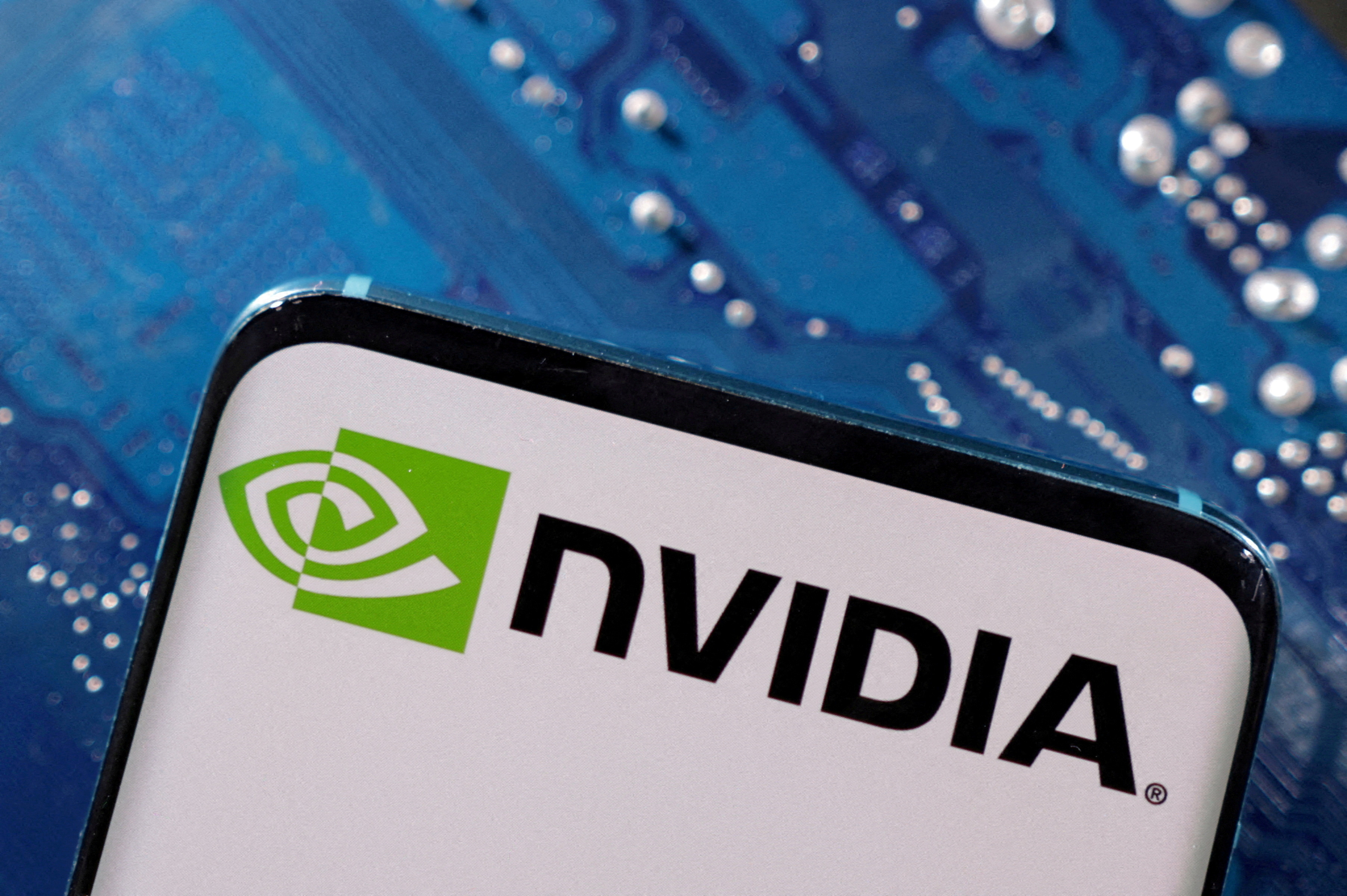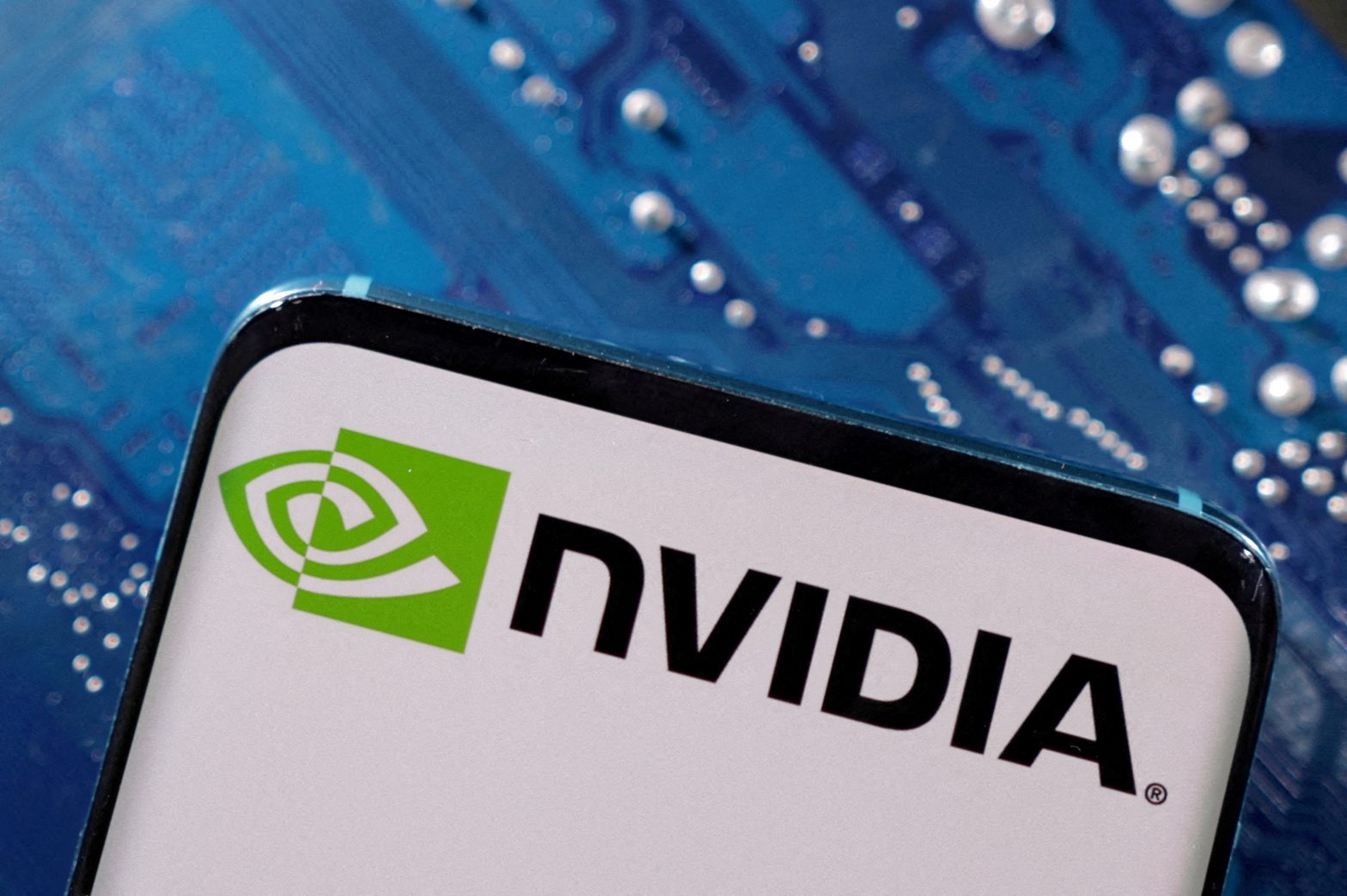
A smartphone with a displayed NVIDIA logo is placed on a computer motherboard in this illustration taken March 6, 2023. REUTERS/Dado Ruvic/Illustration/File Photo/File Photo Acquire Licensing Rights
Aug 30 (Reuters) – The U.S. expanded the restriction of exports of sophisticated Nvidia (NVDA.O) artificial intelligence chips beyond China to other regions including some countries in the Middle East, the company said in a regulatory filing this week.
U.S. officials usually impose export controls for national security reasons. A sweeping set of rules announced last October signaled a major escalation of the U.S. crackdown on China’s technological capabilities, but it wasn’t immediately clear what risks exports to the Middle East posed.
Nvidia did not specify which countries in the Middle East were affected. The company got most of its $13.5 billion in sales in its fiscal quarter ended July 30 from the United States, China and Taiwan. About 13.9% of sales came from all other countries combined, and Nvidia does not provide a revenue breakout from the Middle East.
Nvidia did not immediately respond to a request for comment. The U.S. Commerce department, which normally administers new licensing requirements on exports, did not immediately return a request for comment.
“During the second quarter of fiscal year 2024, the USG (U.S. government) informed us of an additional licensing requirement for a subset of A100 and H100 products destined to certain customers and other regions, including some countries in the Middle East,” Nvidia said in the filing.
One year ago, Nvidia said U.S. officials told it to stop exporting the same two computing chips for AI work to China. The move was seen as potentially slowing Chinese firms’ ability to carry out advanced work like image recognition.
Last year’s announcements came as tensions bubble over the fate of Taiwan, where chips for Nvidia and almost every other major chip firm are manufactured.
The securities filing, posted Aug. 28, did not detail which countries are newly restricted from receiving chips.
Reporting by Jasper Ward and Ismail Shakil and Stephen Nellis in San Francisco; editing by Rami Ayyub, Eric Beech and Nick Zieminski
Our Standards: The Thomson Reuters Trust Principles.
